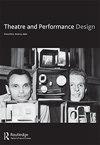Q2 Arts and Humanities
引用次数: 0
摘要
1958年初,Jerzy Gurawski是Kraków科技大学建筑系的一名学生,他参加了Jerzy Grotowski关于古印度色情主题的客座讲座,当时他正在做他的最后一个学位项目。他们在彼此的陪伴中发现了兴奋和刺激,开始了一场艺术合作,在接下来的六年里,他们探索了制作戏剧和表演的方法,这些方法反过来影响并在许多方面支撑了过去60年的艺术实践。这一杰出合作的社会和政治背景远不止是有趣的传记背景。从1953年开始,波兰的共产主义经历了一段温和的去斯大林化进程,在某些微小但意义重大的方面,这让戏剧得以挣扎着走向流行,尽管1949年波兰作家联盟大会颁布的社会主义现实主义风格宣言仍然决定了再现主义的方法。然而,对于年轻人来说,戏剧俱乐部是一种麻醉的隐喻,也是社会、政治和艺术反叛的机会。最重要的是,他们可以发起挑衅性的戏剧作品,这些作品的物理和空间表演不会轻易受到国家的审查。本文章由计算机程序翻译,如有差异,请以英文原文为准。
A tribute to Jerzy Gurawski (1936–2022)
Jerzy Gurawski was a student in the Faculty of Architecture at the Kraków University of Technology working on his final diploma project in early 1958 when he attended a guest lecture by Jerzy Grotowski on the subject of old Hindu erotica. Discovering excitement and stimulation in each other’s company, they began an artistic collaboration which, for the next half dozen years, explored approaches to making theatre and performance that in turn have influenced and in many ways underpinned artistic practices for the last 60 years. The social and political context of this remarkable collaboration is much more than interesting biographical background. From 1953, Polish communism had undergone a gentle de-Stalinization that in some small but significant ways allowed theatre to struggle into popularity, although the stylistic dictum of Socialist Realism decreed by the Congress of Polish Writers’ Union of 1949 still determined representational approaches. However, for young people, theatre clubs served as a narcotic metaphor and opportunity for social, political and artistic rebellion. Most importantly, they could initiate provocative theatre work whose physical and spatial performance could not be readily censored by the state.
求助全文
通过发布文献求助,成功后即可免费获取论文全文。
去求助
来源期刊

Theatre and Performance Design
Arts and Humanities-Visual Arts and Performing Arts
CiteScore
0.40
自引率
0.00%
发文量
14
 求助内容:
求助内容: 应助结果提醒方式:
应助结果提醒方式:


